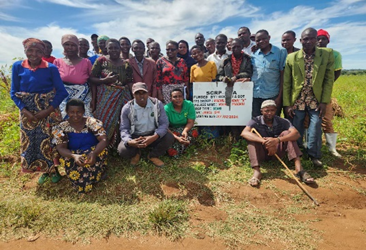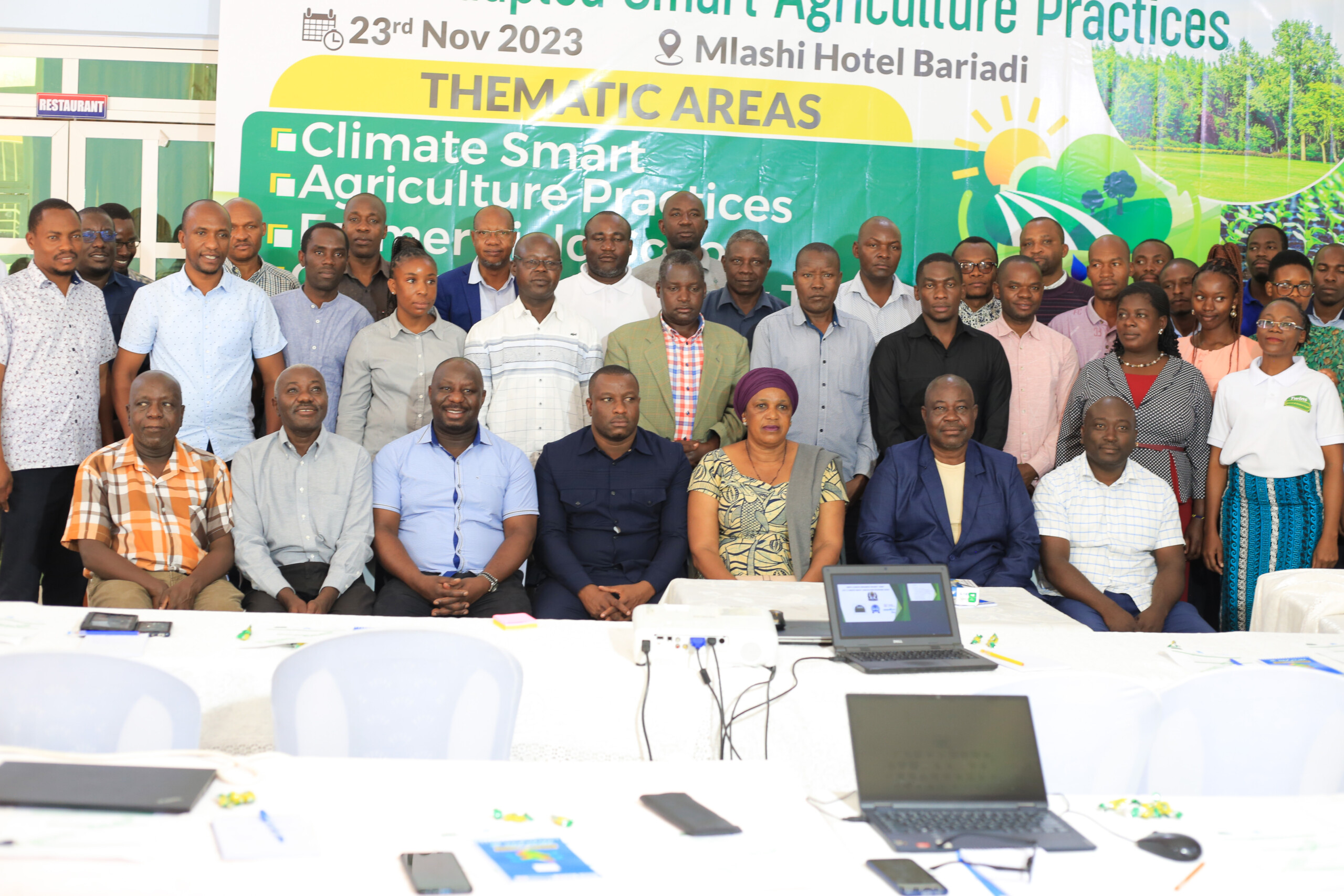In a significant boost to agriculture, 212 farmer groups in Simiyu region are celebrating newfound success in their farming endeavors, thanks to Climate Smart Agriculture (CSA) Practices introduced by TWINS AGROVET.
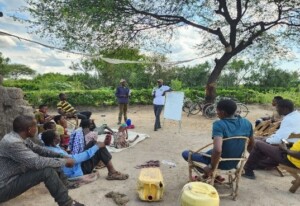
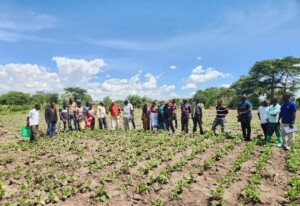
Onsite technical advice left (Kasoli village, Bariadi DC) Right Ng’hesha village, Itilima
The farmers, who cultivate a climate resilient seed including Common beans and vegetables (Okra, African eggplants, Amaranthus, attribute their achievements to specialized training offered under a Simiyu Climate Resilient Project spearheaded by TWINS AGROVET, a prominent non-governmental organization.

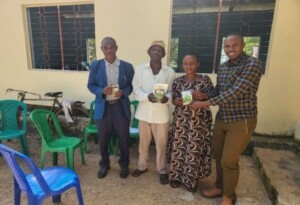
Delivering climate resilient seeds left (Common beans, Bariadi TC), Right (Horticultural seeds, Busega)
Spread across all districts of Simiyu, the project has not only helped farmers enhance their crop yield but also reduce farming costs significantly.
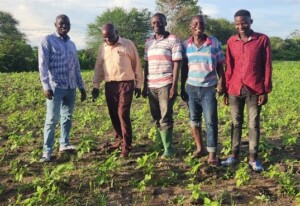
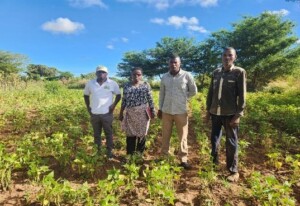
Common bean FFS demo plots in Kijilishi village, Busega (left) and Sakasaka village in Meatu district right
Bahame Enock, a leader among the farmer groups, emphasized the transformative impact of the project on their farming methods and productivity.
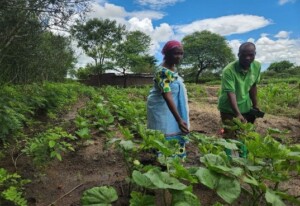
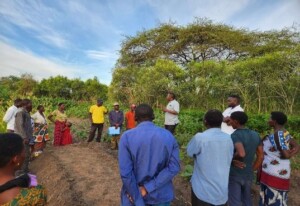
Mr. Bahame and Ms. Sophia left while right FFS members in Horticulture FFS demo plots Kasoli village, Bariadi DC
“We have diversified our crops within the same fields and now use homemade pesticides like Lantana camara, Neems (Azadirachta indica), Sodom Apple (Solanum incanum) and Chili pepper. Previously, we relied on expensive store-bought pesticides that posed risks to both health and finances,” remarked Bahame Enock.
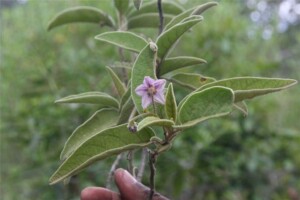
Sodom Apple (Solanum incanum)

Neems (Azadirachta indica)
He further highlighted the project’s advocacy for organic farming practices, noting the shift towards natural fertilizers such as well-decomposed manure derived from cow dung instead of commercially available alternatives and additionally, using mulch helps retain soil moisture and suppresses weed growth.
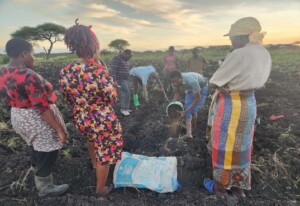
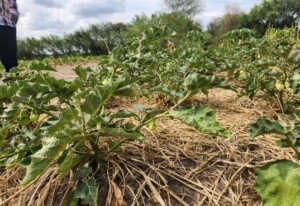
FFS members in Mwandoya village, Meatu, applying well-decomposed manure(left), Mulching of African eggplants in Kasoli village, Bariadi DC (Right)
Another farmer, specializing in common bean cultivation, reported a remarkable increase in harvests from one sack to seven sacks (1 sack = 20kg) per quarter-acre plot after implementing the CSA Practices.
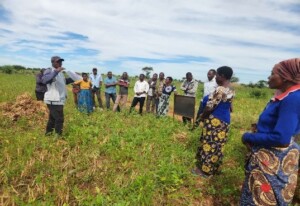
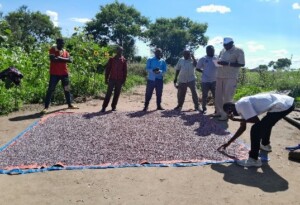
Onsite training on post-harvest handling in Malwilo Mnadani village, Meatu (Left), Ng’hesha village, Itilima
“This project has not only boosted our agricultural yield but also improved our livelihoods. It presents an opportunity for everyone to adopt CSA Practices that mitigate the adverse effects of climate change,” shared the farmer.
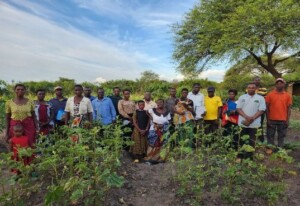
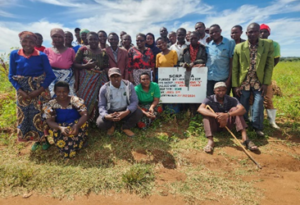
FFS Members posing for family photos after onsite training in Kasoli village, Bariadi DC (Left), Malwilo Mnadani Village, Meatu (Right)
Expressing gratitude to TWINS AGROVET for equipping them with valuable knowledge, Bahame Enock encouraged other farmers to join the initiative, especially those involved in horticultural farming, to benefit from the upcoming farming seasons.
Simiyu Climate Resilient Project (SCRP) is sponsored by Green Climate Fund(GCF), The German Government through KfW and United Republic of Tanzania. TWINS is contracted by the consortium led by GITEC-IGIP in collaboration with Sachen Wasser and ICE Project Services (GITEC-IGIP/ICE Project Services.
Related Posts
Marketing is about game changing Don’t stay behind your business, move forward. I know you understand that livestock is wealth, But are you practicing modern livestock farming? One of the key things to consider […]
The Deputy Minister of Foreign Affairs Visit the Twins Agrovet Booth at the Nanenane Exhibition 2024
Hon. Omar J. Kipanga, the Deputy Minister for Foreign Affairs, visited the Twins Agrovet booth at the Nanenane Exhibition in the Eastern Zone, held at the Mwl. Julius Nyerere Grounds in Morogoro Region. During the exhibition, the Deputy Minister and his team had the […]
The Eastern Zone exhibition, held at the Mwl Julius Nyerere grounds in Morogoro, provided an opportunity for Twins Agrovet to introduce and showcase various livestock and crop fertilizer products that aim to enhance productivity for farmers and livestock keepers. Among the showcased products were: […]
In an effort to enhance agricultural sustainability and equip local farmers with climate-smart techniques,

